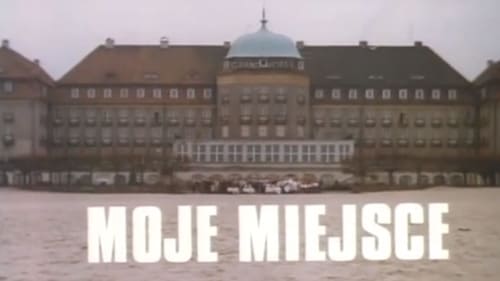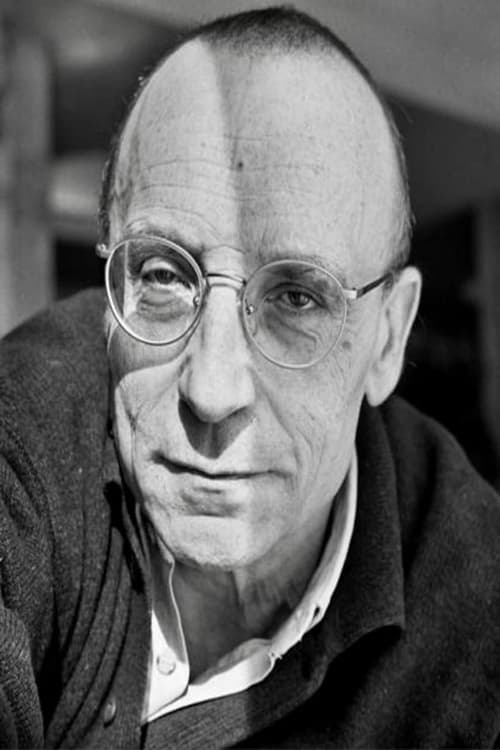Marcel Łoziński
출생 : 1940-05-17, Paris - France
약력
Marcel Loziński was born in 1940 in Paris. He earned his degree in Film Directing from Łódź Film School. He has made a number of excellent documentaries, which include How It’s Done(2006), Anything Can Happen (1995), Microphone’s Test (1980), Front Collision (1975), The Visit (1974) and was nominated to the European Academy Award and American Oscar for his documentary film 89 mm from Europe (1993). For the past four years he has been the head of the documentary programme at the Andrzej Wajda Master School of Film Directing.

Writer
Two acclaimed documentary film-makers - father and son - drive from Poland to Paris to see the place where the ashes of the father's mother are buried. What accompanies them on the way are resentments, quarrels and sincere confessions.

Writer
Father and Son on a Journey

Self
Father and Son on a Journey

Director
Father and Son on a Journey

Writer

Director

Director
Tomek, Marcel Lozinski's son, is eighteen now. Exactly twelve years ago, when he was six, his father filmed him while he was visiting a park in Warsaw. Tomek used to stop next to some old people sitting on the benches, and, with childish frankness, would ask them questions about joy, loneliness, fear of death, dreams, love and lack of love. Now, after twelve years, on his birthday, Tomek comes back to the garden of his childhood. A magical encounter will commence.

Writer
Tomek, Marcel Lozinski's son, is eighteen now. Exactly twelve years ago, when he was six, his father filmed him while he was visiting a park in Warsaw. Tomek used to stop next to some old people sitting on the benches, and, with childish frankness, would ask them questions about joy, loneliness, fear of death, dreams, love and lack of love. Now, after twelve years, on his birthday, Tomek comes back to the garden of his childhood. A magical encounter will commence.

Writer
Piotr Tymochowicz, media advisor to some of Poland's top politicians, claims that anybody can be molded into a charismatic leader. To prove it he's looking for a greenhorn that can be turned into a candidate. A call is put out for would-be participants, and hundreds apply. A small group is selected and under go training. Polish master Marcel Lozinksi followed Tymochowicz and this project for three years, and this beautifully shot and edited work paints a compelling portrait of cynical (and quite familiar) demagogy and populism in action.

Director
Piotr Tymochowicz, media advisor to some of Poland's top politicians, claims that anybody can be molded into a charismatic leader. To prove it he's looking for a greenhorn that can be turned into a candidate. A call is put out for would-be participants, and hundreds apply. A small group is selected and under go training. Polish master Marcel Lozinksi followed Tymochowicz and this project for three years, and this beautifully shot and edited work paints a compelling portrait of cynical (and quite familiar) demagogy and populism in action.

Director
Weaves together the personal recollections of four Polish survivors of the Holocaust with original footage from the present day. The film focuses specifically on the relations between Jews and Poles in Nazi occupied Poland.

Writer
Polish filmmaker Marcel Łoziński revisits the farmer/intellectual Urszula Flis, subjects of his 1978 film 'A visit'. Łoziński observes the changes that have occurred over the intervening 23 years and again persuades this sensitive, secluded woman to talk through her thoughts, fears and feelings. Through this, the morality of the documentary portrait itself is called into question.

Director
Polish filmmaker Marcel Łoziński revisits the farmer/intellectual Urszula Flis, subjects of his 1978 film 'A visit'. Łoziński observes the changes that have occurred over the intervening 23 years and again persuades this sensitive, secluded woman to talk through her thoughts, fears and feelings. Through this, the morality of the documentary portrait itself is called into question.

Writer
A story of life and death, featuring Lozinski's six-year-old son Tomaszek and elderly people spending time on the benches of a Warsaw park. Riding his scooter, Tomaszek asks the elderly very adult, though basic, questions, which they are happy to answer. The boy's ideas of future and life are confronted with those of men at the end of their lives.

Director
A story of life and death, featuring Lozinski's six-year-old son Tomaszek and elderly people spending time on the benches of a Warsaw park. Riding his scooter, Tomaszek asks the elderly very adult, though basic, questions, which they are happy to answer. The boy's ideas of future and life are confronted with those of men at the end of their lives.

Director
Documentary about post-communist Poland

Writer
This movie shows the simplest difference between Europe and former Soviet Union. It is the eponymous 89 mm - Russian train tracks are 89 mm wider than tracks in European countries. And because of this fact, it is not easy to go through the Soviet border by train in Brest as the passengers in the film do.

Director
This movie shows the simplest difference between Europe and former Soviet Union. It is the eponymous 89 mm - Russian train tracks are 89 mm wider than tracks in European countries. And because of this fact, it is not easy to go through the Soviet border by train in Brest as the passengers in the film do.

Writer

Director

Screenplay
Marcel Łoziński tells the story of the crime committed by the NKVD in Katyn in 1940. He interweaves accounts of witnesses and survivors with images from the pilgrimage of members of Katyn Families to the place of murder, death and nameless burial of their loved ones.

Director
Marcel Łoziński tells the story of the crime committed by the NKVD in Katyn in 1940. He interweaves accounts of witnesses and survivors with images from the pilgrimage of members of Katyn Families to the place of murder, death and nameless burial of their loved ones.

Writer
On July 4th, 1946, the crowd in Kielce, Poland, slaughtered forty-two Jews and wounded many others. Forty years later, in 1987, Marcel Łoziński visited those places and met some witnesses of the carnage.

Director
On July 4th, 1946, the crowd in Kielce, Poland, slaughtered forty-two Jews and wounded many others. Forty years later, in 1987, Marcel Łoziński visited those places and met some witnesses of the carnage.

Writer
At the famous Grand Hotel in Sopot, each worker - whether a porter, a maid, a cook or a stoker - feels an important part of their workplace. Perhaps even the most important.

Director
At the famous Grand Hotel in Sopot, each worker - whether a porter, a maid, a cook or a stoker - feels an important part of their workplace. Perhaps even the most important.

Director
A street poll about contemporary youth. The answers are engineered to show the manipulation of propaganda and television.

Writer
A holiday training camp for young married couples who belong to the Polish Socialist Youth Union (ZSMP) begins at the campsite. From the commander's welcome speech, they learn that a film crew will record camp life and training classes under the slogan "Model Family".

Director
A holiday training camp for young married couples who belong to the Polish Socialist Youth Union (ZSMP) begins at the campsite. From the commander's welcome speech, they learn that a film crew will record camp life and training classes under the slogan "Model Family".

Director
A Warsaw Pollena-Uroda cosmetics factory radio broadcaster is working on a programme investigating the workers' sense of factory ownership. The workers' answers come as a surprise, especially to the management. About the ruling and the ruled in communist Poland.

Director
The final oral exam in history and social studies at one of Warsaw's high schools. The film illustrates the theatre of social life in Soviet Poland where one says different things on the stage and another behind the scenes.

Director
A man doing the ironing on the ground floor of a tenement house observes the yard.

Screenplay
This movie is about the visit of Clive Harris, the famous healer, to Warsaw. Incredible crowds gather before the entrance and Harris "heals" thousands of people by briefly touching them. Tireless on his stand, he fulfills his duty for 24 hours a day.

Director
This movie is about the visit of Clive Harris, the famous healer, to Warsaw. Incredible crowds gather before the entrance and Harris "heals" thousands of people by briefly touching them. Tireless on his stand, he fulfills his duty for 24 hours a day.

Screenplay
Shortly before retiring, an old railway worker causes a serious accident which ultimately destroys his whole professional career.

Director
Shortly before retiring, an old railway worker causes a serious accident which ultimately destroys his whole professional career.

Director
A "Polityka" weekly journalist Marta Wesolowska and photo-reporter Erazm Ciolek visit Urszula Flis, who runs a country farm. A young woman living on her own, Flis is an untypical villager in that she is interested in culture, corresponds with writers, etc.

Director
Brief portrait of a conformist.

Director
A purge in the style of those of March 1968 is to take place at a party meeting. Instead, it turns into a psychodrama.

Director
A group of director's school colleagues meet after 12 years at his place. They talk about what they think of their life choices.

himself
A group of director's school colleagues meet after 12 years at his place. They talk about what they think of their life choices.

Director




